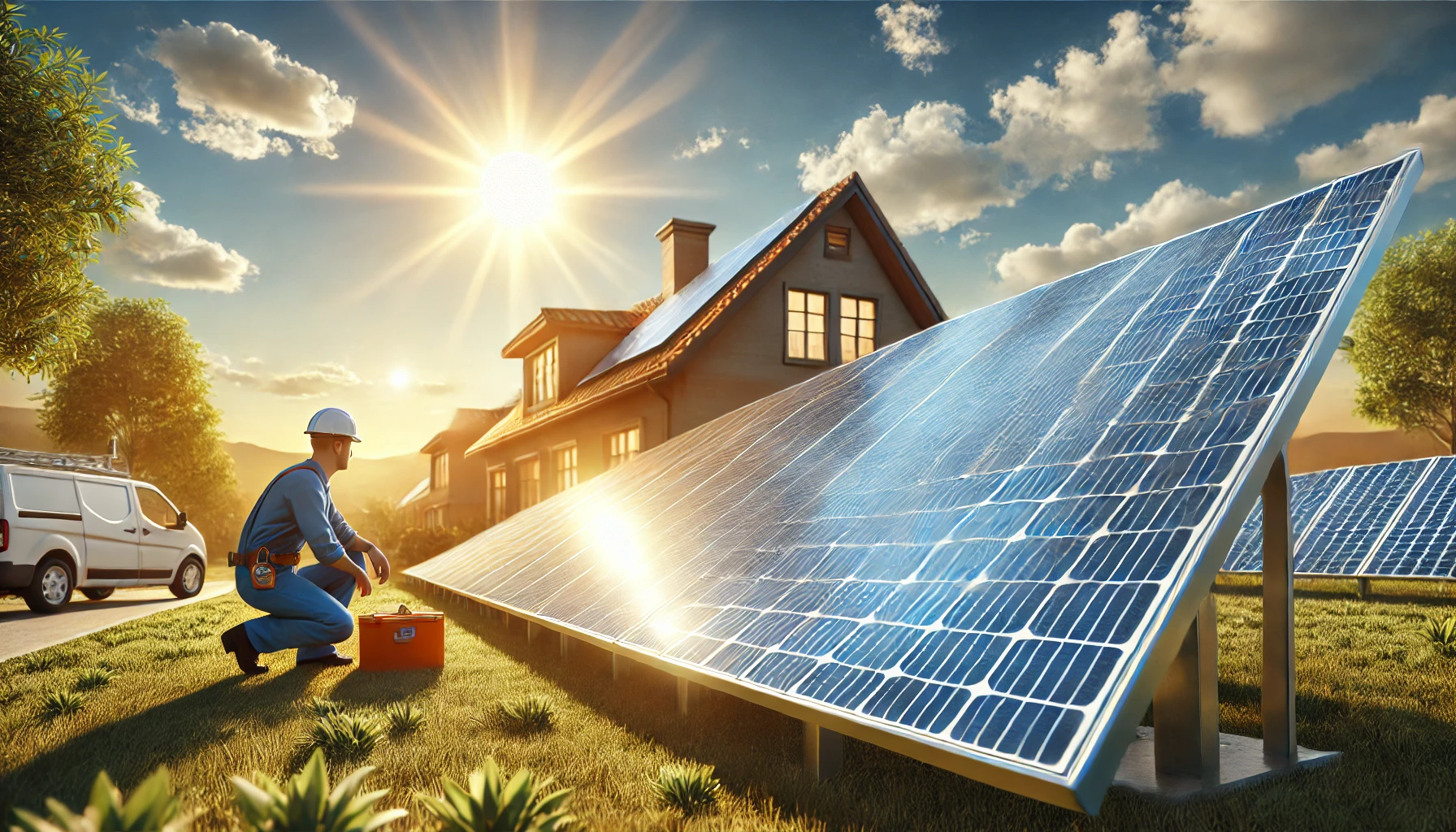The Sun Solar energy is an eco-friendly source of renewable power derived directly from the sun. Each day its light and heat provide us with immense amounts of energy, which we have found ways to harness more efficiently—most commonly with professional installation teams installing Solar Panel Installer designed for maximum power production efficiency and production output.
Solar Panel Composition
A solar panel consists of multiple photovoltaic (PV) cells that convert sunlight to electricity using photoelectricity, often using silicon semiconductor materials as their foundation. When sunlight hits these PV cells, it excites electrons within them, which then form an electric current. Individually, these individual PV cells contribute small amounts; when combined, they generate enough power for residential and commercial usage.
Solar Panels Employ the Photovoltaic Effect
Solar panels use photovoltaic power generation as their basis, producing electricity when sunlight hits silicon cells, creating an electric field that forces electrons to move around, resulting in direct current (DC). Since its widespread adoption worldwide, solar power has allowed homes and businesses to reduce reliance on traditional electricity sources by replacing them with renewable sources like solar power.
The Role of an Inverter
As solar panels produce direct current (DC), while most household appliances use alternating current (AC), an inverter must convert this DC electricity to AC for use by appliances, lighting fixtures, and electronic devices. There are different kinds of inverters, including string inverters, microinverters, and hybrid inverters, each offering specific benefits.
Net Metering and Energy Storage
When solar panel systems produce more power than is consumed within a home, any excess can either be sent back into the grid via net metering for credits on electricity bills for any extra power generated or stored away as battery storage to use during nighttime or cloudy days when there’s no sun available.
Efficiency Is of Critical Importance
Solar panel efficiency refers to its capacity to turn sunlight into usable electricity, with higher-efficiency panels being better at doing this than their lower-efficiency counterparts, making them suitable for areas with limited roof space and sunlight availability. Numerous factors affect efficiency, such as material quality, design features, Residential Solar installer Pennsylvania, and environmental conditions; however, regular cleaning helps extend lifespan and improve performance over time.
Installation Process
Solar panel installations involve several steps, from initial evaluation of your property and selection of suitable locations through mounting system installation and final connection with an inverter and electrical grid for maximum performance and optimal safety. Professional installers in Pennsylvania are on hand to offer guidance throughout each stage, from permitting approvals and incentive acquisition all the way to commissioning permits or providing professional installation services themselves.
Cost and Financial Benefits
While initial solar panel installation costs can seem prohibitive, financial solutions provide more affordable investments. Tax credits or rebates from state governments help offset upfront investments while harnessing solar power reduces electricity bills while saving money through harnessing renewable power produced directly by the sun—eventually saving more on power than its installation expenses—making solar an economical solution.
Solar Energy’s Environmental Implications
Solar power energy production is among the cleanest and most sustainable forms available today, producing no greenhouse gases that contribute to global climate change or reduce carbon footprints for homeowners or businesses who switch over. Furthermore, using renewable resources helps foster greater sustainability by using fewer non-renewable resources, thereby leading to a brighter future.
Solar Energy Can Present Challenges and Limitations
While solar energy offers many advantages, its implementation may present unique obstacles. Energy production from panels relies heavily on sunlight availability; accordingly, energy output decreases on cloudy days or evenings when sunlight availability decreases. The initial investment can also be prohibitively costly for some homeowners; financing solutions and incentives offer some relief; space limitations could pose obstacles during installation in urban settings where roof space may be more limited.
Advancements in Solar Technology’s Future
Innovations in solar technology continue to advance efficiency, affordability, and accessibility for users. Researchers are studying innovative perovskite solar cells, which may outshone traditional silicon panels, and high-capacity batteries to make storing and using solar energy easier—these developments point towards solar becoming even more mainstream over time.
Selecting an Appropriate Solar System
Finding an ideal Solar Estimating Services depends on various considerations, including energy needs, available space, budget, and location. When making their selection, homeowners should seek professional guidance or use professional estimating services in order to estimate costs and savings associated with going solar; by reviewing energy use data as well as financial incentives, they provide invaluable insight into its advantages.
Solar energy offers an eco-friendly and cost-efficient alternative to traditional sources, made even more accessible thanks to technological developments that make panels cost-effective and accessible for homeowners. Before making decisions to switch over, homeowners must understand how their panels operate before making informed choices in terms of installation efficiency and financial costs when making informed choices about switching over.
